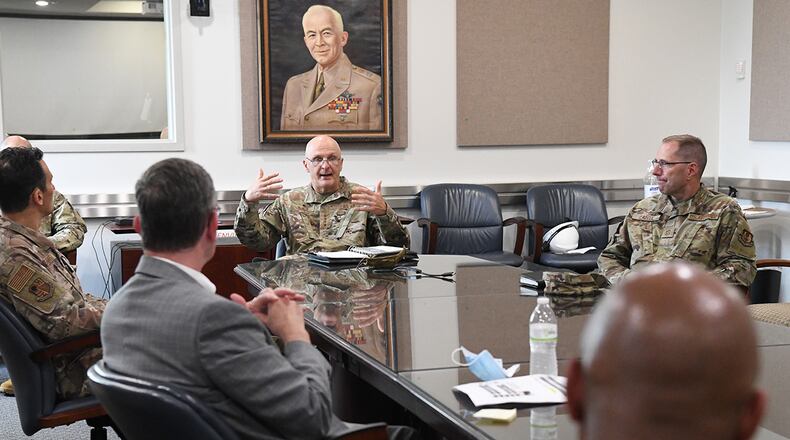The process uses “centralized selection cells” within each AFMC center to manage recruitment, the command said.
Each cell can be seen as a centralized cadre of decision-makers who make hiring choices. The cells identify vacancies, post job openings, review resumes, interview candidates, hire and more, AFMC said. The process will be used to fill about 2,000 developmental positions annually, the command said.
AFMC began piloting the cells in August 2018 in the contracting and logistics career fields.
In an interview Friday, Bill Snodgrass, AFMC director of manpower, personnel and services, said the cells were formed to hire civilian employees with greater speed. The idea was to hire people as fast as the private sector.
“We knew this was going to be make things quicker, and it did,” he said.
More recently, the cells have also come to be seen as a way to overcome “unconscious bias” in hiring decisions.
“The thought was, not only could these central cells perhaps hire people faster, if we train people the right way, and we have HR (human resources) professionals who understand things ... they could make these hires and we could hopefully reduce any unconscious bias in the hiring process,” Snodgrass said.
Having more than one person making hiring decisions helps, said Tammy Lyons, AFMC Personnel Support Division chief.
“A team helps us to get away from some of those individual biases,” Lyons said.
Snodgrass said AFMC is the only entity right now in the Air Force that’s doing this. With some 70,000 employees, the command often drives policies for the entire Air Force, he said.
“We’re happy to be pioneering some of these concepts,” he said.
Cells will be located at AFMC headquarters and at key locations across the command.
In the command’s first diversity and inclusion survey, whose results were released earlier this year: Of all responding civilian employees, 20% stated that they believed hiring is impacted by race and/or ethnicity.
While some respondents believed promotion and hiring actions are biased against Black people and women, others said opportunities are limited based on a perceived “reverse racism” that favors minorities.
AFMC is an important Air Force command, responsible for the Air Force’s massive material, logistics and research needs and missions. The command is headquartered at Wright-Patterson and has about 40% of all Air Force civilian employees — nearly 71,000 civilian employees, with an additional 19,113 uniformed employees.
Air Force Materiel Command demographics, total command workforce, military and civilian.
70,902 civilians and 19,113 military
White male: 56.5%
White female: 18.09%
Black male: 7.78%
Black female: 4.66%
Asian male: 2.8%
Asian female: 1.2%
Hispanic (both sexes): 8.09%
Hawaiian native other Pacific islander male: 0.37%
Hawaiian native /other Pacific islander female: 0.16%
Multiracial male: 2.28%
Multiracial female: 1.03%
Not identified/declined to respond: Male: 2.7%; female: 1.02%
Source: AFMC
About the Author


